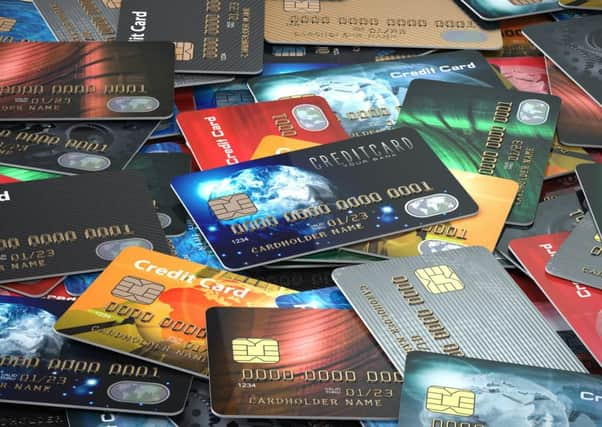James Walker: Quids in when you play your credit cards right


In fact, paying with a credit card gives you lots of rights. It can even cover you if a firm looks like it’s going to go bust (terms and conditions apply). Here’s my guide to your rights when you pay using a credit card.
Before we start, a word of warning. Buying on a credit card gives you a number of rights under the Consumer Credit Act – and used responsibly, credit cards can be incredibly useful. But it’s only worth taking one out if you make a real effort to pay it off every month. Debt on a card can spiral really quickly – so keep on top of it.
Advertisement
Hide AdAdvertisement
Hide Ad◆ Section 75. You’ve probably heard me mention this useful bit of legislation before so I won’t bang on about it. Section 75 of the Consumer Credit Act allows you to make a claim to the credit provider if the goods or services you buy don’t turn up or aren’t what you were told they were going to be or have been “misrepresented”. Most importantly, you have to spend over £100 and under £30,000 in full or in part for the goods. It’s really useful.
◆ Paying a deposit. When I say “paying in part” check this out – a really good benefit of section 75 involves deposits. As before, the total value of the item you pay a deposit on has to be between the limits of £100 to £30,000. But if you pay any amount of that as a deposit (even £1) then if something goes wrong you can claim the whole amount back from the card provider.
◆ A few quirks. Much as we love the Consumer Credit Act, it’s pretty old (1974 originally) and though it’s been updated a few times, the way it’s worded doesn’t always fit with the way we live and shop today. For example, you may not be covered if you’re paying for something using an “electronic payment system” like PayPal or Skrill. Many people have a credit card as the main way of paying through these websites. But the credit card companies dispute that the law covers them. I have to say, I don’t agree, but until this is addressed in a court case, it’s likely complaints about section 75 claims and payments by this method will be turned down.
◆ Not what you thought? The tricky part about the law is the bit where it says about the goods or services being “misrepresented”. That’s a pretty broad term – and it’s why there are lots of section 75 complaints. So make sure you explain why you think you’ve been misled by the retailer.
◆ When firms go bust. Paying on a credit card is also useful if you get wind that a business that you’ve bought goods from is about to go bust. Just call the card provider and ask them to “charge back” the cash (the same works for a debit card). You can only do this if the items you’ve ordered haven’t been sent of course.
Because many high street brands continue to be under threat, I’ve put together a guide on what happens when firms go bust on the Resolver website (https://www.resolver.co.uk/news/your-rights-when-firms-go-bust).
Resolver can help you sort out complaints about pretty much anything – so why not help a friend or relative sort out a problem, get a refund or make a claim.